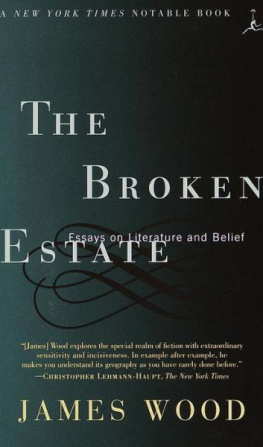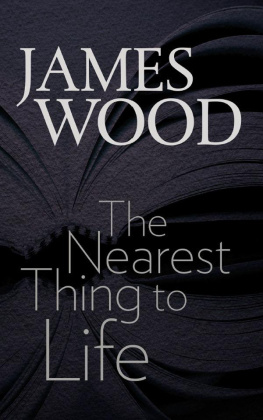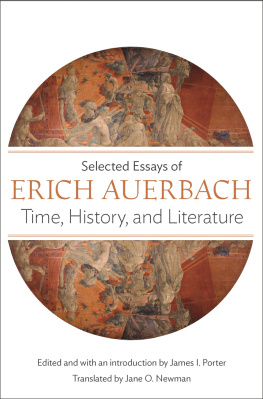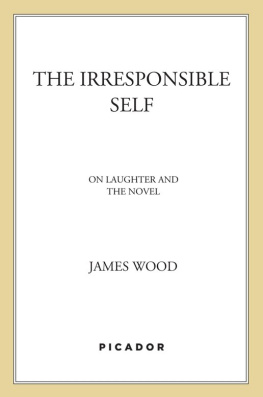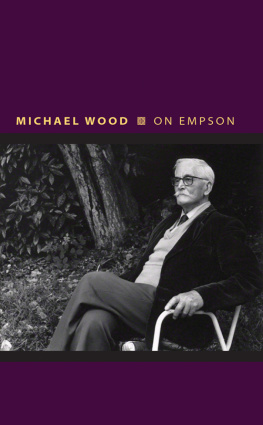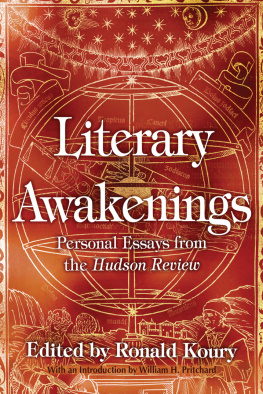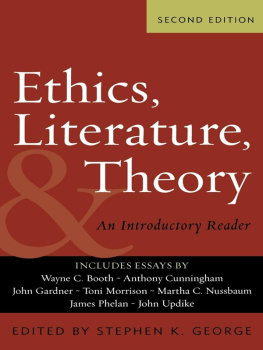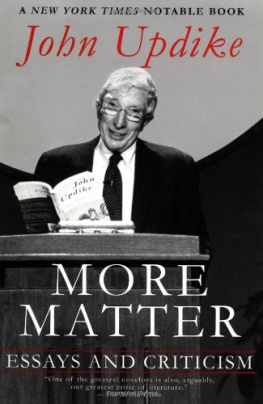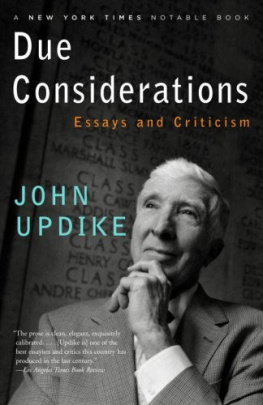So what is the Shakespearean difference? Or to be more limited, how are his characters different from other fictional characters? If they do indeed found much of our subjectivity, what are the characteristics of this orig-inary strength? Coleridge, the most acute of Shakespeare critics, admired the fact that Shakespeare's characters, "like those in real life, are to be inferred by the reader." We are not told what to think about Shakespeare's characters, and often their motives are abysmal. Indeed, the greatest of Shakespeare's characters are both knowable and finally unknowable: Hamlet, most famously, but also Lear, Edmund, Iago, Macbeth, Prince Hal. In each case, the information we are given, as T. S. Eliot complained rather pointlessly about Hamlet, is insufficient for the explanation of motive. So it is not just that these characters live in our minds, as we endlessly try to "complete them,- it is that they are also rich cavities into which we continually place the optimistic seeds of our interpretations and watch them grow. We possess these characters, and then they possess us,- they create us, and then we create them.
Bloom likes to use, and overuse, Hegels phrase that these characters are "free artists of themselves. Bloom values most the way that they change onstage and, above all, change in the course of their soliloquieswhat he beautifully calls "changing by overhearing themselves. The soliloquy is the means by which the character speaks to himself and also listens to himself speaking to himself. This double capacity, and the freedom it entails, is apparent as well in Chekhov, Woolf, Hamsun, and Toni Morrison, but nowhere is it felt more acutely than in Shakespearean soliloquy. We begin with a lovely conceit: that what is rare but not extraordinary in real lifethat we catch ourselves in the process of thinkingis a beautiful paradox in art, for of course the words that a character "overhears are written not by him but by the poet or novelist who created him. Thus, in one sense, the Shakespearean character is changed by listening, as it were, to Shakespeare's own poetry. It is worth considering Shakespeare's achievement novelisticallyin the light of the form that replaced drama and that has devoted itself to the impossible task of equaling Shakespeare's colossal novelistic capacities. As fine as Hegel's "free artists of themselves and less pious is Henry James's general plea that the novelist create free characters "in the irresponsible, plastic sense. For if we need to defend Shakespeare's supremacyand thanks to certain trends in current criticism it seems we doone crushing way is to compare his superiority as a novelistic creator of character over every novelist in world literature. Shakespeare is the writer to whom novelists go,- even novelists' characters go to Shakespeare, as the men do at the start of Turgenev's "King Lear of the Steppes," discussing among themselves how "each of us could name Hamlets, Othellos and Falstaffs, even Richard Ills and Macbeths (these last, true, only in potential) whom we'd come across. The narrator of Knut Hamsun's Hunger preempts Harold Bloom when he says that "the conscience was only invented by Shakespeare.
E. M. Forster liked to distinguish between "flat and "round characters,- Dickens's characters, he thought, were flat but vibrated very vigorously. Yet there is a sense in which all characters in even the greatest novels are vigorously flat, and only Shakespeare's are truly round. One obvious reason for Shakespearean exceptionalism in this area is that a novel's characters belong to the page, while Shakespeare's are enacted on stage,- they walk, sigh, rage, and so on. But that is only the first difference. In Cervantes, in Tolstoy, in Dostoyevsky, even in George Eliot, the reader knows (and happily accepts) that certain deep characters are also being used by the novelist to propound the novelist's views, to push the novel in certain directions: wisdom suddenly falls from above, like rain. But Shakespeare seems uncannily able to disappear, to inhabit, for the purposes of characterization, a huge range of different views about life. Shakespeare is Epicurean, skeptical, nihilistic, humanistic, pagan. Coleridge called him the Spinozistic deity, and Santayana concludes his essay "The Absence of Religion in Shakespeare" with the observation that the dramatist is remarkable in that he lacked both a philosophy and a religion. Among novelists, Cervantes, Sterne, Dickens, Hamsun, Chekhov, Joyce, Proust, Woolf, and Faulkner show splinters of the true Shakespearean freedom, which is the generosity to allow characters to run on, in private thought and public speech, into the apparent irrelevance that is actually the very mark and substance of the character's personality. Shakespeare, effectively, invents novelistic stream of consciousness, which is merely mental soliloquy.
We are perhaps too familiar now with the great heroes of Shakespeare's plays and their capacities for change, but I am as interested in those smaller Shakespearean characters who do not change, whose soliloquies are not grand spectacleswhose soliloquies, indeed, are evidence that they are rather forgetfully just being themselves. The Hegelian idea of the characters as free artists of themselves necessarily endows the characters with more plasticity, more purpose and agency, than they sometimes have. But James's idea of "irresponsibility" is more illuminating, I think, suggesting a character's stubborn refusal to follow the aes-theticism of his maker. (That all characters are made by a maker and are therefore unfree is merely obvious and need not hamper the figurative illusion that they have escaped from their maker.) Many of Shakespeare's characters are not so much free artists of themselves as free of themselves and in so being, entirely themselves.
The Shakespearean soliloquy may appear at any moment, and in a sense all Shakespeare's wordy characters are soliloquists, always taking language on extended strolls. In academic study, the soliloquy gets separated from the play and is taken to be one of those moments when a character "speaks his private thoughts" to the audience. But in an entirely soliloquizing world, in which characters often soliloquize at other characters while mistakenly supposing that they are merely conversing with them, there is no distinction between private mental thought and public conversation: all are failed privacies. Both modes of talk are lost secrets: private thought is lost somewhere between our minds and our souls, and public conversation is lost somewhere between us. What we say to ourselves is often quite similar to what we say to each other, because we solipsistically forget that we are in fact speaking to someone else. Dickens and Chekhov are the great novelistic developers of this insight.
Take the extraordinary moment in the first act of Alls Well That Ends Well when Bertram is first introduced to the king of France. Instead of receiving Bertram in the usual way and asking after him, the king (Shakespeare's kings are always horribly self-involved) reminisces about Bertram's father, whom he loved:
Youth, thou bear st thou fathers face,-Frank nature, rather curious than in haste,
Hath well compos'd thee....
I would I had that corporal soundness now As when thy father and myself in friendship First tried our soldiership. He did look far Into the service of the time, and was Discipled of the bravest.
And on the king goes, entirely self-absorbed, for the next forty lines, as Bertram struggles to interject various politenesses. What is interesting here is the demonstration that Shakespeare's characters seem real to us because they seem very real to themselves, because they take their memories and private universes for granted. The Hegelian "free artist" view puts too much emphasis on a character's alienation from himself,- but the king of France, like so many Shakespearean characters, is at one with himself while not necessarily in command of himself. Shakespeare's characters manage to hold in place the paradox that they feel real to themselves but do not know themselves. (Lear "hath ever but slenderly known himself," as Regan comments sardonically.)
Next page
